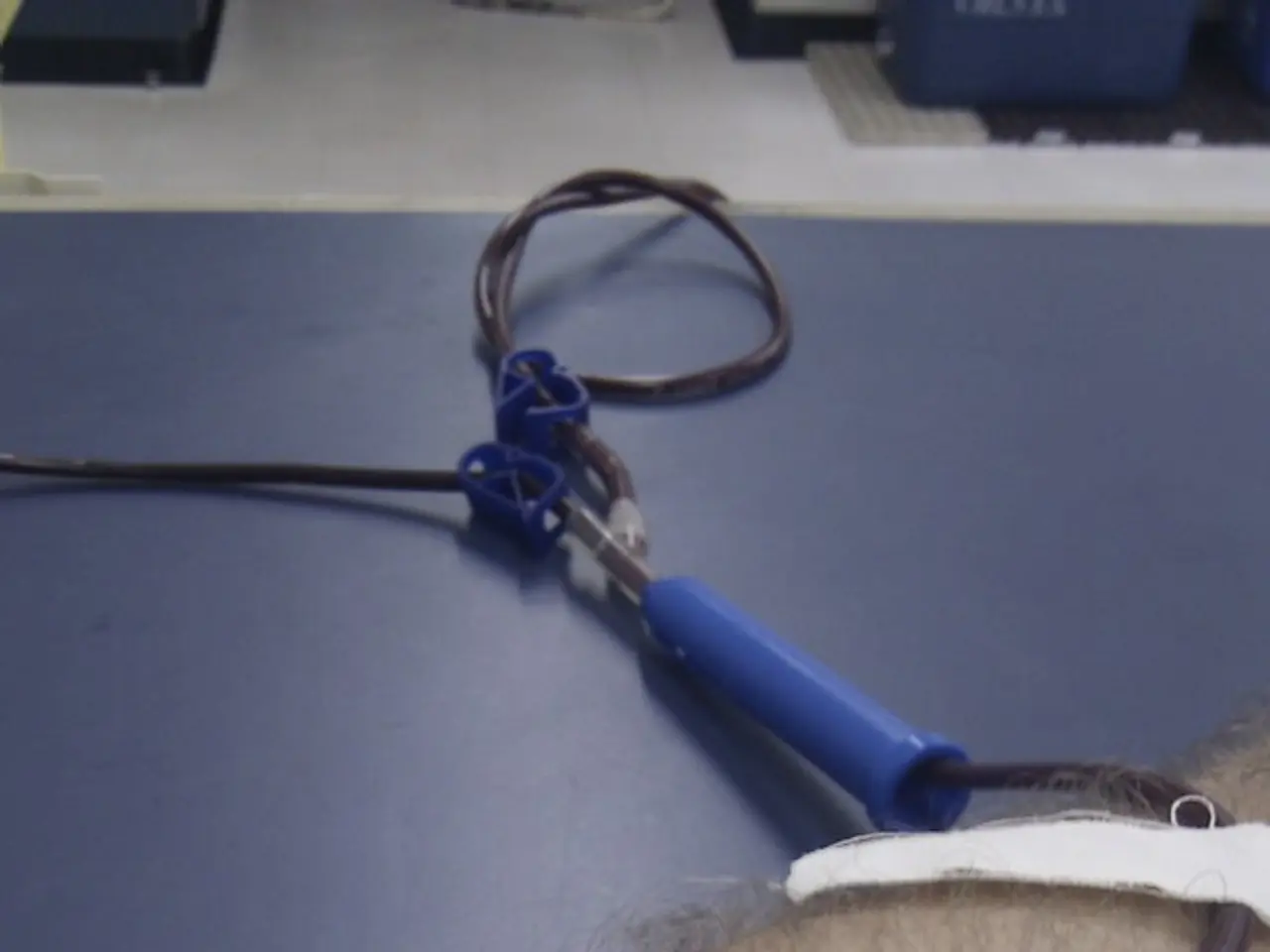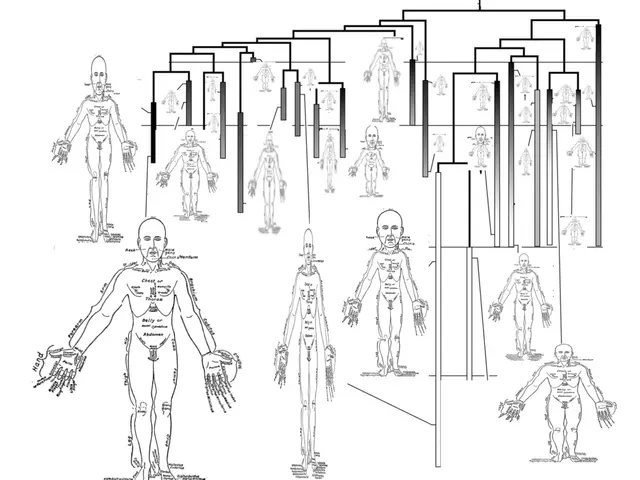Nineteenth-century medical revolution: delving into the groundbreaking advancements in medicine during this era
The 19th century marked a transformative era in the world of medicine, with groundbreaking discoveries that forever changed the landscape of healthcare. This period, characterized by rapid technological advancements and a surge in scientific understanding, particularly in the field of medicine, brought about a shift from mystical and symptomatic treatments to a more scientifically grounded approach.
One of the most significant discoveries was the development of the germ theory, which identified microorganisms like bacteria and viruses as the agents causing diseases. Pioneers such as Louis Pasteur and Robert Koch played crucial roles in this revolution, establishing microbiology as a science and paving the way for vaccines and immunology research[1][5].
Advances in microbiology and immunology led to the isolation and characterization of bacteria, enabling scientists to understand their role in disease transmission and development. Pasteur's work, for instance, established protective vaccination principles, significantly reducing the prevalence of infectious diseases[5].
The introduction of antiseptic methods in surgery by Joseph Lister was another game-changer. By drastically reducing post-surgical infections and mortality, Lister transformed surgical practice from a last resort to a more reliable treatment modality[5].
Epidemiological discoveries, such as the identification of vectors like mosquitoes in transmitting malaria and yellow fever, clarified disease transmission pathways and helped target interventions[5].
Public health reforms were also a significant feature of the 19th century. The establishment of public health institutions focused on improving environmental conditions and controlling contagious diseases based on scientific understanding of pathogens was instrumental in reducing the spread of diseases[5].
The impact of these breakthroughs was profound. The shift from mystical and symptomatic treatment to scientifically grounded disease causation led to a decrease in mortality and infectious disease prevalence. The introduction of vaccines and hygiene practices, the advent of antiseptic surgery, and the enhancement of epidemiological knowledge allowed for targeted disease control efforts[1][5].
Public health infrastructure and preventive medicine emerged as key components of healthcare systems during this time. The 19th century saw the development of vaccines for smallpox, the first antitoxin for diphtheria, and the implementation of mandatory vaccination in infants' first three months of life[1][5].
In addition to these advancements, the 19th century witnessed numerous other medical breakthroughs. The discovery of X-rays, the development of new wonder drugs, and the invention of the stethoscope and the first portable electric hearing aid are just a few examples of the incredible progress made during this era[1][5].
From the invention of the ophthalmoscope by Hermann von Helmholtz in 1851 to the establishment of a Royal Commission for the Health of the Army by Florence Nightingale following her experiences as a nurse during the Crimean War, the 19th century was a golden age for medicine. These pioneering breakthroughs laid the foundation of modern medicine characterized by evidence-based prevention, diagnostics, and treatment[1][5].
References: [1] "The History of Medicine." BBC, BBC, 17 Mar. 2021, www.bbc.co.uk/historyofmedicine/stories/timeline/1800_1900.shtml. [2] "19th Century Medicine." National Library of Medicine, U.S. National Library of Medicine, www.nlm.nih.gov/exhibition/19thcentury/intro.html. [3] "The Germ Theory of Disease." National Library of Medicine, U.S. National Library of Medicine, www.nlm.nih.gov/exhibition/germs/timeline/timeline_1800_1900.html. [4] "The History of Vaccines." The College of Physicians of Philadelphia, The College of Physicians of Philadelphia, www.historyofvaccines.org/content/articles/19th-century-medicine. [5] "19th Century Medicine." Encyclopædia Britannica, Encyclopædia Britannica, Inc., www.britannica.com/topic/19th-century-medicine.
Scientific advancements in the 19th century, particularly in the fields of microbiology and immunology, led to the development of medical-conditions understanding, including the germ theory which identified microorganisms as agents causing diseases. These discoveries significantly impacted health-and-wellness, reducing infectious diseases' prevalence and mortality rates.




